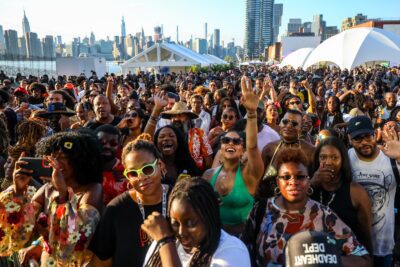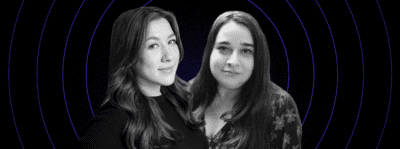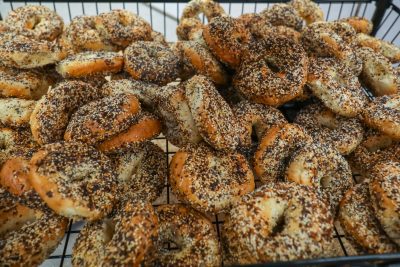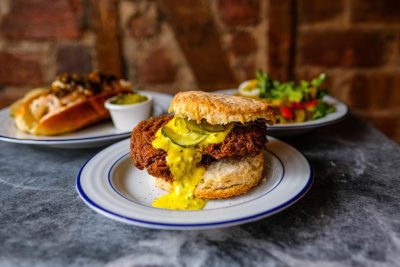Photo by Georgie McKeon
At AM:PM Gallery, a celebration of Black-owned photography shop Photodom
The photography store's team exhibition put the people behind the lens (and the people behind them) into the spotlight
Two men are standing outside of AM:PM Gallery in East Williamsburg, marveling at its glass storefront, which has been covered over entirely with strips of film.
“This is just from one week,” says Dominick Lewis, owner of Bushwick-based camera store and film development lab Photodom. The strips are film negatives which his customers had failed to pick up in the past week, repurposed as cheeky decoration for Photodom’s team photography exhibition.
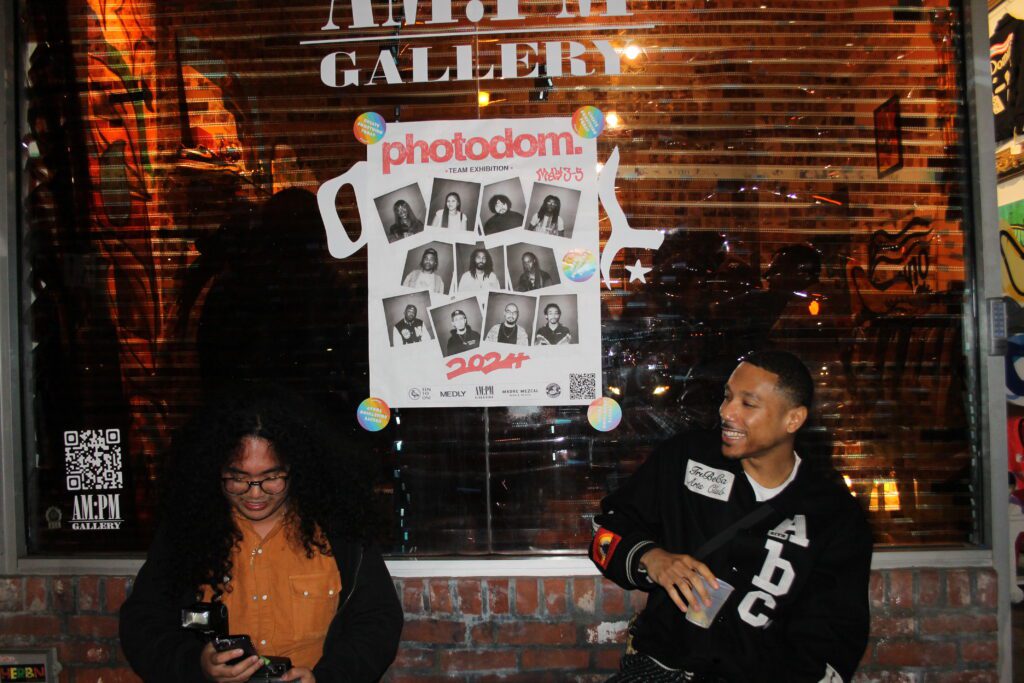
Outside the AM:PM Gallery (Photo by Georgie McKeon)
The exhibition, which opened Friday, May 3, at AM:PM Gallery and ran through the weekend, was a showcase of the diverse talents of 11 of Photodom’s staff members: P.V., Miche Matias-Cortes, Csyan Russell, Devin Leon, Dominick Lewis, Gianluca Caputto, Ianko Joseph, SUEDE, Luis Ramirez, Tahja Winfrey, and Shay Waugh. Not unlike developing a photo, the exhibition came to life after much time and patience.
Lewis opened Photodom four years ago, inspired by his experiences documenting Black Lives Matter protests across Brooklyn. With the store, he sought to create a welcoming space in an underserved neighborhood for people to discover film photography. He’d been dreaming of organizing an exhibition of his talented team for over two years.
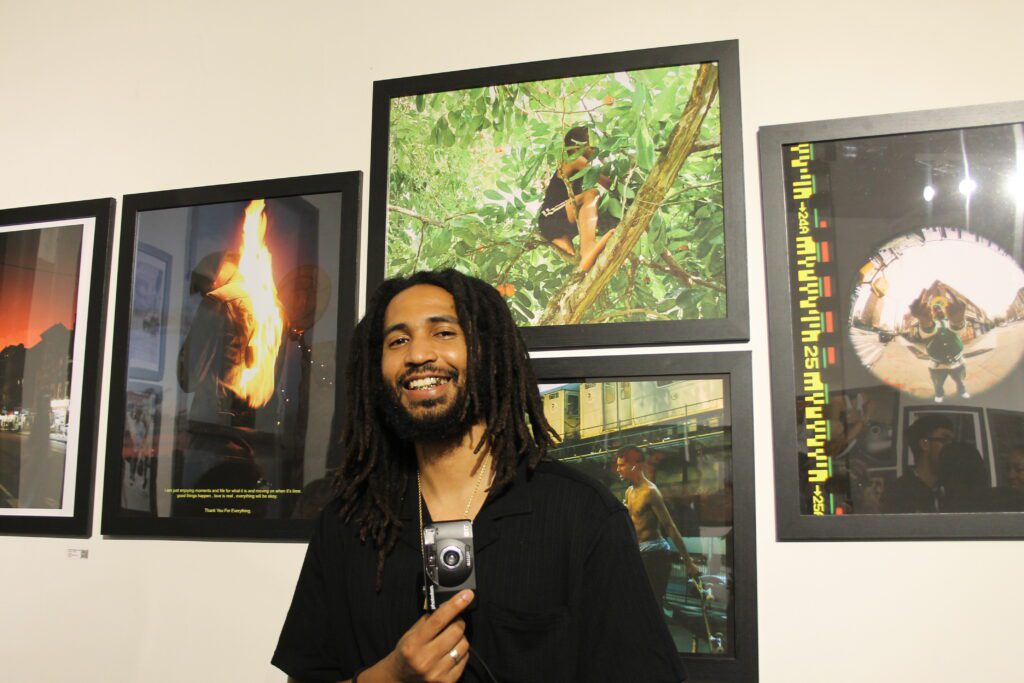

Dominick Lewis stands in front of his ‘Our National Fruit’ (Photo by Georgie McKeon)
“It feels like a dream, to see this all in person,” says Louie Ramirez, store manager of Photodom, his bright eyes roving from picture frame to picture frame. “To see that we’re all under one house representing each other, and not just that, but representing a community that’s learning to thrive out here in Brooklyn feels really, really great.”
Photodom’s community of friends, family and customers showed up in full force to celebrate the exhibition, turning the opening into a block party. Attendees danced to DJ-supplied jams and posed to have their pictures taken with their favorite works on the wall. A video camera positioned in the corner of the room played back its feed on a 1990s-era box T.V., transforming those who caught themselves on the screen into the stars of their own music video. Others perused the magazines Photodom produced exclusively for the event and jostled for the team’s autographs.
Noted New York City street photographer Louis Mendes, who has been following Lewis’ career for years, was invited to the opening to take attendees’ photos. Carrying his 1940s Jumbo Speed camera with him all night, Mendes hardly stood out, though — nearly everyone toted a camera with them, from petite point and shoots to massive medium format Pentaxes. Looking around the crowd, it was difficult to distinguish the photographers in the exhibition from the locals Photodom services, which is indicative of the shop’s come one, come all spirit.
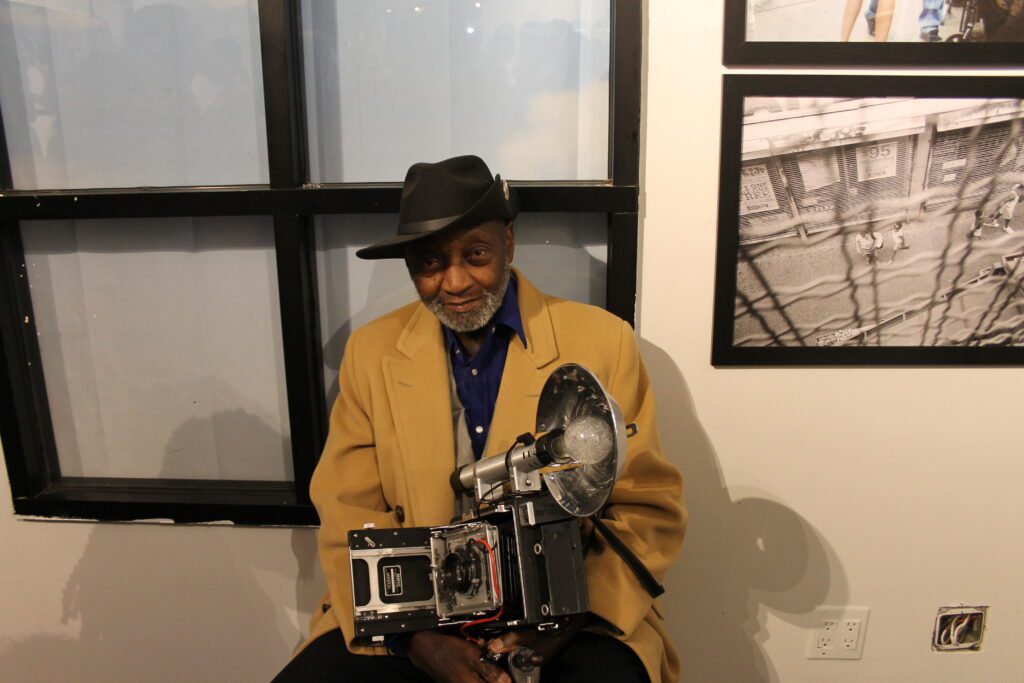

Louis Mendes (Photo by Georgie McKeon)
Photographer Shaye Waugh, whose work is featured in the show, knew Lewis from the photography scene in South Florida; when she moved to New York, she was offered a job in the film lab.
“Working here opened my eyes to new experimental things I never thought that I would have the opportunity to do,” she says. “In the lab, I have that responsibility to take care of other people’s memories and have the resources to expand my own abilities too.”
When Tahja Winfrey started as an intern at Photodom in 2020, she had taken several photography classes, but was looking for more. “I wanted to find a community of people who looked like me, I wanted to find a way in,” says Winfrey. “Photodom allowed me to find my people and to have the space to learn and grow into the photographer I am today.” Now, Winfrey manages the shop’s film lab, and this exhibition is her first time showing her photography in a gallery.
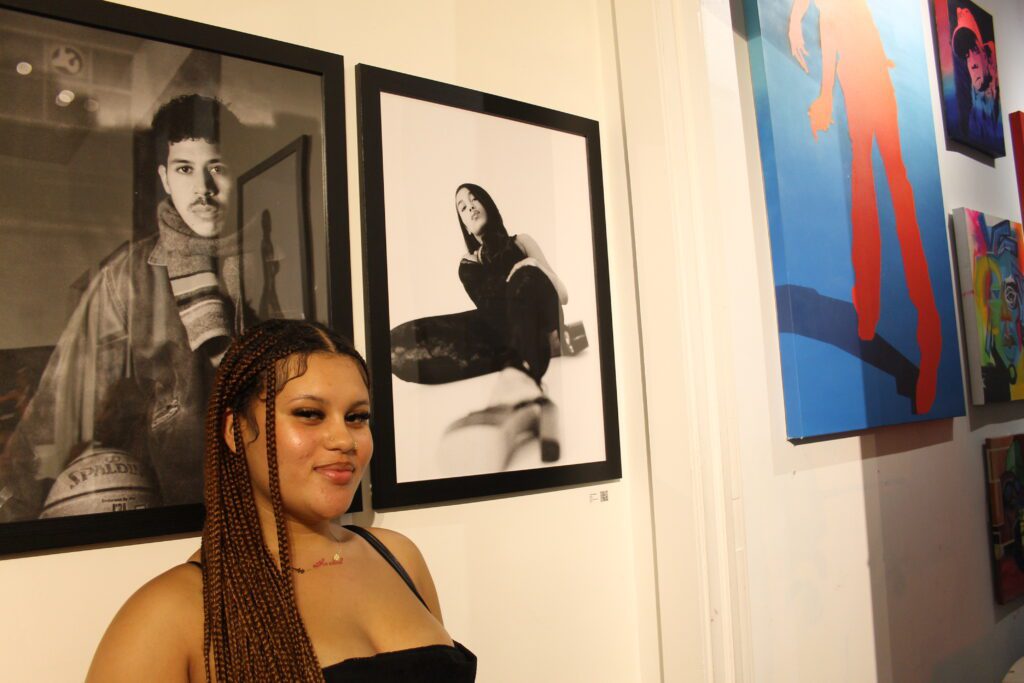

Tahja Winfrey in front of her work ‘Allure’ (Photo by Georgie McKeon)
Each picture on the wall reflects the diverse backgrounds of each photographer; a scene of daily life in Jamaica explores one photographer’s heritage, another’s depiction of rainy cityscapes a testament to their East Village upbringing. The team varies in age and experience, but all insist upon the collaborative and supportive environment of the shop. Many described the store itself as a second home, their coworkers as their second family.
“The people of Photodom, Dom himself, have turned film into a lifestyle,” says Devin Leon, who was debuting his work for the first time. “Before it was like ‘Yeah, okay. You’re a photographer, this your profession.’ But no, this is something that I live, breathe, and bleed.”
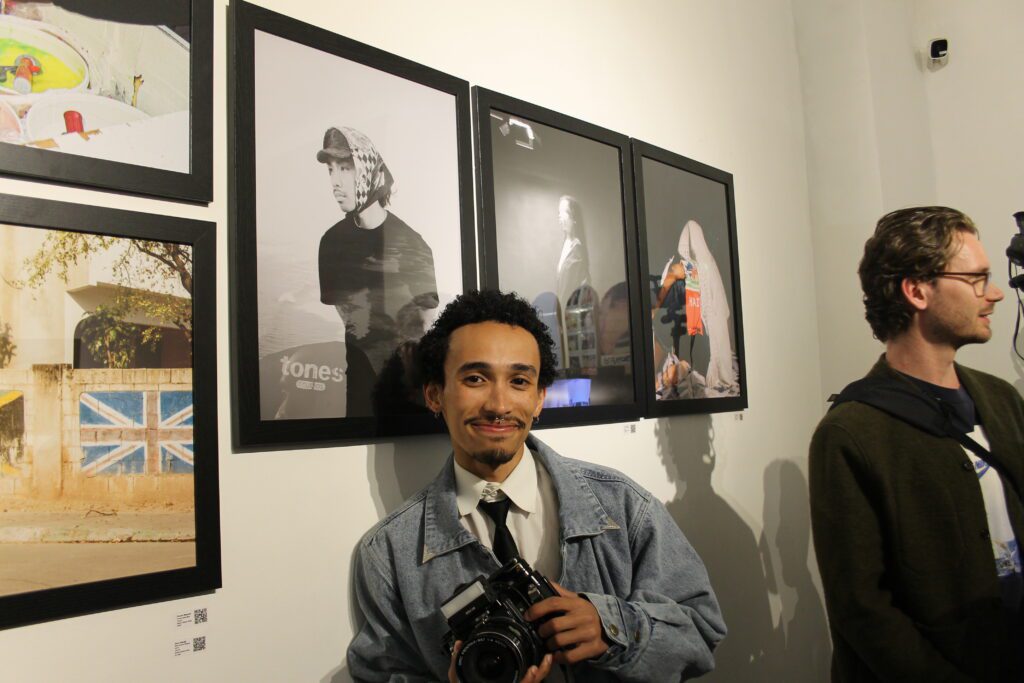

Devin Leon in front of ‘Salvador, the Calmness of His Island’ (Photo by Georgie McKeon)
Lewis plans on organizing many more exhibitions in the future, hoping to collaborate with more photographers in the community as well as continue to showcase the vision and artistry of the Photodom team. Lewis also has ambitions of opening a second Photodom location in another underserved neighborhood, in Harlem.
“We’re constantly pushing the envelope and not just settling for what’s enough,” says Lewis. “We’re constantly trying to do more for the people around us.”
As Lewis headed home from the exhibition, the party was spilling out onto the sidewalks. People posed for pictures in front of the exhibition poster, others clustered to smoke and converse away from the music. People called goodbye and shouted hello as waves of friends came and went. The door was kept open all night, an invitation for anyone to join the party.
You might also like 

















